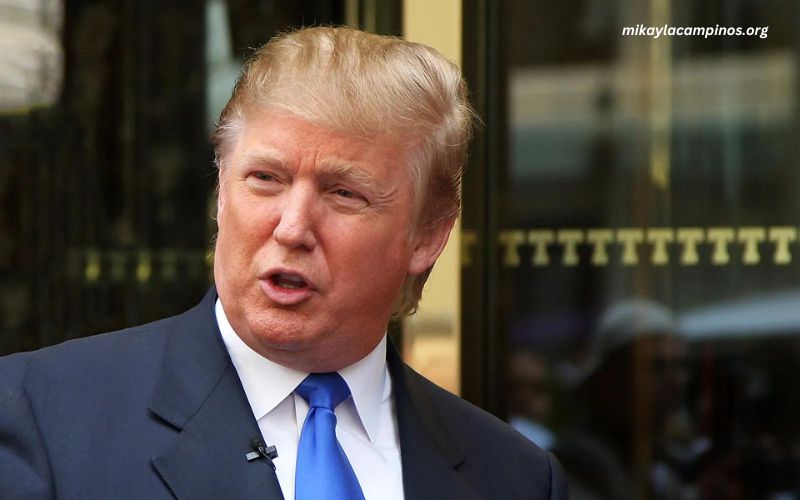Donald John Trump, the 45th President of the United States, is a figure who has become synonymous with modern American politics. His age, as of 2024, is a significant aspect of his persona, influencing public perception, media portrayal, and political strategy. Born on June 14, 1946, in Queens, New York, Trump is currently 77 years old. This article will explore how Trump’s age has played a role in his career, public image, and the broader political landscape.
Early Life and Career (1946-2016)
Donald Trump was born into a well-to-do family, his father, Fred Trump, being a successful real estate developer. Growing up in the bustling environment of New York City, Trump was exposed to the world of business and real estate from an early age. He attended the Wharton School of the University of Pennsylvania, where he earned a degree in economics.
In the years that followed, Trump entered the real estate business, quickly making a name for himself with ambitious projects like Trump Tower in Manhattan. His larger-than-life persona began to emerge during this period, characterized by a blend of bravado and self-promotion. As he built his business empire, Trump became a celebrity, particularly through his role in the reality TV show “The Apprentice,” which debuted in 2004. This show not only elevated his public profile but also showcased his unique business acumen.
As Trump approached his 70s, he began to transition from business mogul to political figure. His age during this period positioned him as a seasoned veteran in the eyes of some voters, while others viewed it as a liability. The question of whether someone in their late 60s and early 70s could effectively lead a nation became a focal point of discussions leading up to the 2016 presidential election.
Presidency and the Age Debate (2016-2020)
Trump’s age became a topic of intense scrutiny during his 2016 presidential campaign. At 70 years old, he was the oldest candidate to assume the presidency. His opponents frequently pointed to his age as a concern, arguing that it might affect his decision-making capabilities, stamina, and overall fitness for office.
Despite these concerns, Trump maintained a vigorous schedule during his campaign, often holding multiple rallies a day. His ability to connect with a diverse range of voters, particularly in rural and working-class areas, overshadowed age-related criticisms. Many supporters viewed his age as an advantage, seeing him as a mature and experienced candidate who could navigate the complexities of Washington, D.C.
Once elected, Trump’s presidency was marked by significant political polarization. His age became a recurring theme, with supporters emphasizing his experience and critics questioning his mental acuity and health. The media often portrayed him as a symbol of an aging political elite, contrasting him with younger politicians who were emerging on the national stage.
Public Perception and Ageism
Ageism, the discrimination against individuals based on their age, played a critical role in how Trump was perceived during his presidency. Some polls indicated that younger voters were more skeptical of Trump’s capabilities, while older voters tended to support him. This generational divide highlighted the complexities of age in politics, as perceptions of fitness and competence varied widely across demographics.
Trump’s public appearances and speaking engagements were often scrutinized for signs of decline. Critics analyzed his speech patterns, cognitive abilities, and physical stamina, sparking debates about whether he was fit for the office. In response, Trump often boasted about his health, emphasizing his fitness routine and mental sharpness.
The discussion around Trump’s age also reflected broader societal attitudes towards aging. In a culture that often glorifies youth, Trump’s position as an elder statesman challenged traditional narratives about leadership. His presidency prompted conversations about the role of older individuals in politics and whether age should be viewed as a disadvantage.
2020 Election and Continued Controversies
As Trump approached the 2020 election, his age continued to be a focal point of his political narrative. At 74 during the election, he faced Democratic nominee Joe Biden, who was also in his late 70s. The age of both candidates became a central issue in the campaign, with debates highlighting their contrasting styles, experiences, and health.
Trump’s health became a topic of concern, especially after he tested positive for COVID-19 in October 2020. The incident raised questions about his physical fitness, particularly for someone of his age. The public’s reaction to his health scare was divided; some viewed it as a vulnerability, while others saw it as a testament to his resilience.
Despite age-related criticisms, Trump’s core supporters remained steadfast. They often viewed him as a robust and dynamic leader, attributing his age-related challenges to media bias. In their eyes, Trump’s ability to rally supporters and maintain a rigorous schedule countered the narratives of decline associated with aging.
Post-Presidency and Ongoing Influence (2021-Present)
After leaving office in January 2021, Trump’s age has continued to shape his political narrative. Now 77, he has maintained a prominent presence in Republican politics, often teasing a potential run for the presidency in 2024. His age remains a double-edged sword; it offers him a wealth of experience but also raises questions about his physical and mental fitness.
In the post-presidency era, Trump has faced legal challenges and controversies, further complicating his relationship with the public. His supporters argue that his age has made him a target for political opponents, who leverage concerns about his mental acuity and health. Meanwhile, critics continue to question whether he is the right choice for a nation that may benefit from fresh leadership.
The 2024 election cycle is shaping up to be heavily influenced by generational dynamics. Younger politicians are emerging on the national stage, challenging the dominance of older figures like Trump. This shift raises questions about the future of American politics and the role of age in shaping leadership.
Conclusion
Donald Trump’s age has played a significant role in shaping his political career and public perception. At 77, he embodies the complexities of aging in a rapidly changing political landscape. While some view his age as a source of wisdom and experience, others see it as a potential liability. The ongoing discourse surrounding Trump’s age reflects broader societal attitudes towards aging, leadership, and generational change.
As the political landscape continues to evolve, Trump’s journey serves as a reminder of the multifaceted nature of age in politics. Whether he will continue to be a dominant figure in American politics or pave the way for younger leaders remains to be seen. Ultimately, the conversations surrounding Trump’s age will likely persist, influencing both his legacy and the future of political discourse in the United States.




This really answered my problem, thank you!